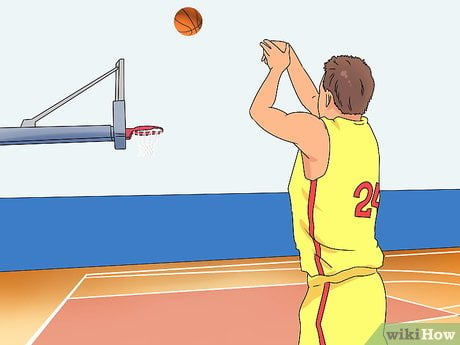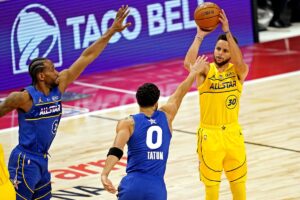12 Rules of Defending Basketball 3-Point Shot
By and large, I still believe free throws and lay-ups are how you win games. However, as a strong advocate of the 3-point shot, I can tell you the “3″ can and will keep you in games and is a great equalizer for teams who are not as big or athletic but who can shoot the ball with accuracy.
Great 3-point shooters can keep a team in a game and on those special nights, upset an opponent seemingly single-handedly, making it essential to have to teach your team how to successfully defend either one great 3-point shooters or to defend a team of solid 3-point shooters.
Here are 12 concepts for defending the 3-point shot:
- Identify the 3-point shooter(s)- You have to know who they are to defend them.
- Play no-help defense– Assign your best defensive player to the great 3-point shooter and do not give help to that defender, eliminating many of the easy and quick ways to set up a 3-point shooter. Penetration is one of the easiest set-ups for a 3-point shot and not helping takes that option away. In effect, the defense is playing a box and one.
- Closeout with high hands – A defender should always “think shot and play drive” and have high hands with closing out on any offensive player to prevent a clean look at the rim. This is particularly important with a 3-point shooter.
- Deny the 3-point shooter when playing pack-line man-to-man– Most pack-type defenses do not contest any non-penetrating pass made beyond the 3-point line. Denying the pass to the 3-point shooter and playing regular defense on all other offensive players is disruptive and effective.
- Be aware of long rebounds – Long rebounds allow for easier offensive rebounds for 3-point shooters. Statistically, a 3-point shooter who can obtain the ball for a second shot from the inside out shoots at a much higher percentage than normal.
- Shade in a zone defense – Know where the 3-point shooter is and shade towards the shooter.
- Make the 3-point shooter put the ball on the floor – Not only does this make the shooter less effective, but the shooter will also drive inside the 3-point arc, eliminating the threat of a 3-point goal.
- When screened leave no gap on the catch – It is not always possible to prevent a 3-point shooter from catching the ball, particularly after a screen. Arrive that e same time the ball does and leave no gap, forcing the shooter to drive.
- Pick up and deny at the NBA 3-point line – Locate the 3-point shooter by the half-court while in defensive transition and deny the shooter from the NBA 3-point line.
- Late in the game to protect a lead, forcing the 3-point shooter to go back door This eliminates the threat of a 3-point shot.
- Late in the game, to protect a lead when up by four, foul – If the opponent is not in the bonus, they will have to inbound the ball. If the opponent is in the 1-and-1 bonus, the opponent has to make the first free throw, miss the second obtain the rebound, and score to score three points. The same situation applies to the double bonus.
- Trap the great shooter – If your team plays a trapping defense out of its man-to-man, this can be an extraordinary tactic. Trap only the great 3-point shooter, forcing the shooter to give the ball up.
For these tactics to be effective, they must be practiced regularly and be a part of your normal defensive arsenal.


